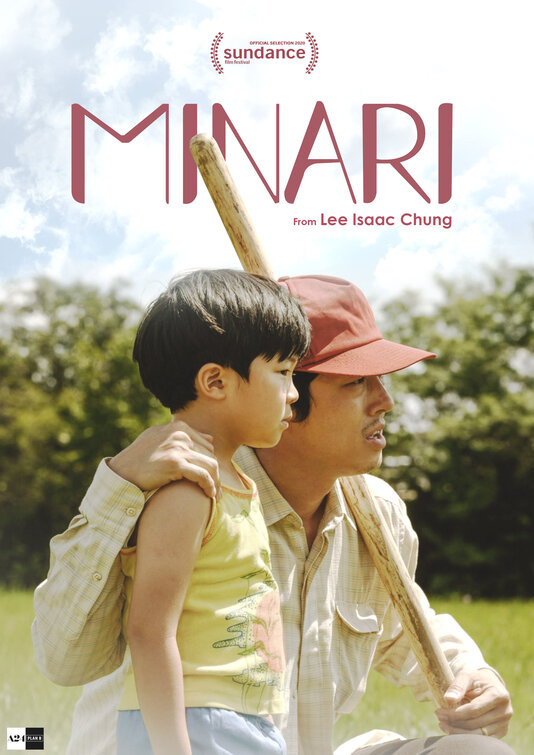“Minari”: A Touching Look at Farming, Family, and Fitting In
In the first minutes of “Minari,” the new film from distribution company A24 directed by Lee Isaac Chung, we watch a Korean-American family drive to a trailer home in the middle of nowhere as the charming, otherworldly score by Emile Mosseri plays. A few minutes later, bickering between husband Jacob (Steven Yeun of “The Walking Dead”) and wife Monica (Han Re-Yi) takes place, along with amazement from their two children David and Anne (played by child actors Alan S. Kim and Noel Kate Cho). We learn that Jacob has moved his small family to rural Arkansas to provide for them by starting a Korean farm. For the next two hours, their story of assimilation and familial love is shown with tenderness and just enough sentimentality to involve the viewer and to make them feel closer to the characters.
“Minari” explores how the Yi family adapts to their new climate by finding work such as determining the gender of baby chicks for a factory and perfecting the logistics of the new farm. In one scene Jacob hires a diviner to find water only to find it himself and tells his son David that “Koreans are smarter.” Eventually, Monica’s mother (Youn Yuh-Jung) arrives from South Korea to help take care of David and Anne. However, David does not take to his foul-mouthed, smoking, card-playing grandmother. By planting a Korean crop called “minari” in a damp creek by the farm and learning her eccentric ways, David warms up to his grandmother as Jacob plans to begin selling his crops. These small scenes give way to a story full of moments of happiness and depression. With this full range of emotion, we see the ups and downs of the Yi family as they struggle to assimilate into their new Arkansas environment.
The powerful performances by the cast, especially the five actors who play the Yi family, make themselves seem as if they are a real family who have been trying to get along with each other. Lee Isaac Chung’s screenplay is based on his experiences growing up in a similar situation, which is noticeable since the childlike wonder and heightened emotion gives the film its dreamy quality. The dialogue switches with quick perfection from Korean to English repeatedly as the Yis argue with each other, talk to their new neighbors, and interact with the community. For instance, when the family attends church for the first time, the congregation welcomes them quite awkwardly.
From the beginning of the film, the viewer is immersed in its sights and sounds. Emile Mosseri’s score is wonderfully extraterrestrial, with its minimalist qualities and puerile instrumentation. The music gives just the right amount of added feeling to each scene it is in, making you feel slightly more than you would without it. These sounds are juxtaposed with the cinematography by Lachlan Milne. The camera records the story with a bright but realistic quality, which flawlessly captures the sunny heat while Jacob toils at his farm, the musty dullness of egg factories and church rooms, and the hopeless dark illuminated only by devastating fire.
In a year plagued by sadness, “Minari” provides the perfect outlet. It explores the full range of human emotion, with themes of feeling separate from others and getting along with family, in a truly beautiful way. Each aspect of it works well enough with the others that it creates an unforgettable experience that will haunt and comfort you long after the credits roll. “Minari” is by no means escapism, but it is a perfect expression of how we feel in difficult times that many will find comfort in.
5/5 Feathers












